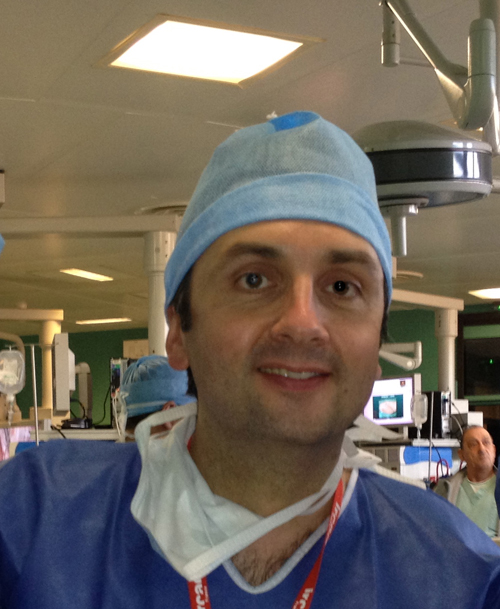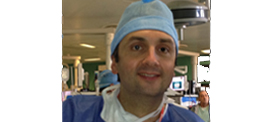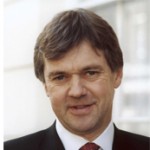Learning curve vs discovery curve: Training urological surgeons, what can we learn from sport?
 Improving training in the United Kingdom may benefit from a more analytical assessment of natural abilities, individual learning curves and understanding and providing the necessary training methods to let trainees reach their potential. It used to be said that surgeons learnt from their mistakes, but surely this philosophy and approach is unacceptable in the 21st Century. To learn from a mistake when it could have been avoided in the first place, with the correct guidance, could be considered negligence. Of course to err is human and none of us are superhuman. However, what we must try to avoid is the “self-discovery” curve in surgery.
Improving training in the United Kingdom may benefit from a more analytical assessment of natural abilities, individual learning curves and understanding and providing the necessary training methods to let trainees reach their potential. It used to be said that surgeons learnt from their mistakes, but surely this philosophy and approach is unacceptable in the 21st Century. To learn from a mistake when it could have been avoided in the first place, with the correct guidance, could be considered negligence. Of course to err is human and none of us are superhuman. However, what we must try to avoid is the “self-discovery” curve in surgery.
Vickers paper assessing fellowships to learn radical prostatectomy showed that a fellowship could shorten your learning curve. I have been on several fellowships abroad and what they had in common was of course numbers. Centres do not get a reputation or expertise by doing one case a year. However they also had in common a structured approach to training fellows that started with observation in theatre, then bedside assisting and finally doing defined steps of the procedure.
The combination of structured training and suitable experience is key to good surgical development. The individual who takes up golf and teaches himself or herself is unlikely to become a scratch golfer and may develop ugly habits that hold them back from reaching their potential. This can be seen in surgery. To complete the golfing analogy (and apologies to non-golfers): once a golfer has a reasonable swing and knows what he/she is doing, the single thing that will define how good he/she gets is how often they play.
Modern professional sportsmen are assessed for their technique using technology and we are starting to see this level of scrutiny in robotic training. Anyone who has used the Mimic technology in the Da Vinci robotic training, will recognise that it looks at several aspects of surgical technique, including economies of movement. In my own experience as an early trainee in open or endoscopic surgery I was rarely told how to hold an instrument properly or indeed about ergonomics and economies of movement. The focus was usually on the operative field, where to cut etc.
In professional sports much thought and investment has gone into creating the optimum environment to initially assess individuals for natural ability, then supporting and nurturing their talent, strengthening them both mentally and physically so that their “investment” is enabled to perform in the toughest situations as well as having longevity. Should we not aspire to do the same for our surgical trainees?
Justin Collins is a Consultant Urologist at Ashford and St Peters NHS Foundation Trust, UK and is a regular trainer on the faculty at IRCAD, Strasbourg, France. @4urology
Comments on this blog are now closed.




This good for people that want to learn different things. I think it would really help a lot.
Just back from my sons first piano recital. He is learning with the Suzuki method, which was conceived by Japanese violinist Shin’ichi Suzuki. The basic concept is that we learn from our environment and that learning can be improved by creating the optimum environment. A part of this is putting very young kids in front of an audience, so that they learn to deal with these pressures from a young age, whilst focusing them on achievable goals.
It occurred to me that as an SHO I was often in theatre and that in todays working environment SHO’s rarely get the opportunity to come to theatre. In sport the importance of learning your skills in the right environment is also evident and playing competitive games is a key part of this development.
Another observation from the recital was the number of children doing duets on the piano. When I asked the teacher what she felt were the advantages of this she said that it taught the children to play in a co-ordinated way together, whilst it reassured and was also more fun. The equivalent in sport is clear and I confess to really enjoy working in a theatre team. Whether training someone or doing a difficult case with a colleague, a team approach reduces pressures and increases the enjoyment of our working environment.
Obviously, not every approach in sport is equivocal to surgical training and it seems in sport that the best results can still come from an Alex Ferguson approach to coaching. The ‘hairdryer’ shouting to get your point across at one point in time was a relatively common occurrence in theatres. In my view we will get more from a nurturing approach, as proposed in the Suzuki method.
For those who want to know how my son did. He was excellent and we were all very proud of him and the other children.